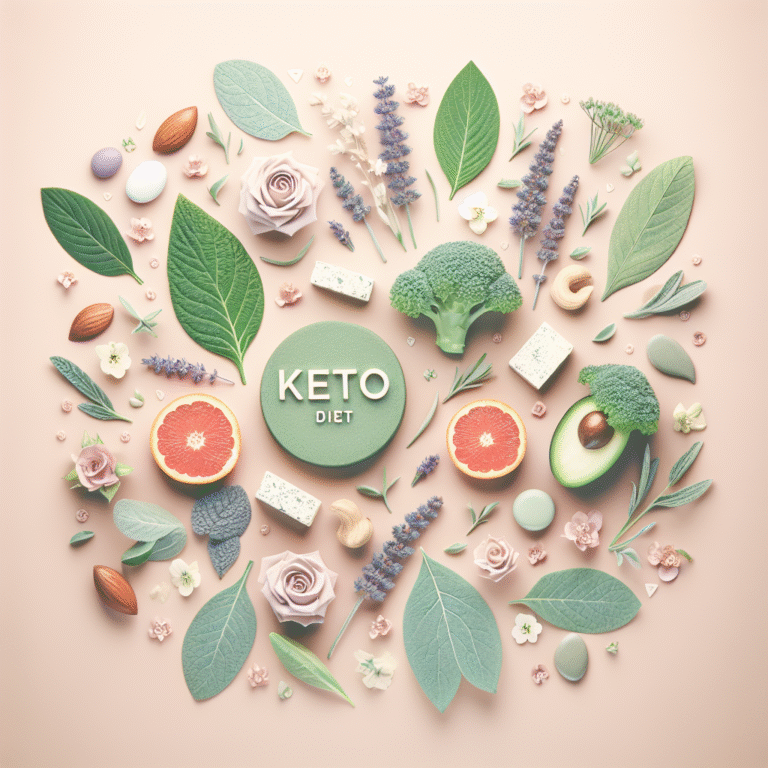Secret Health Benefits of Broccoli

Broccoli, often dubbed as a superfood, is a staple in many healthy diets around the globe. While its reputation as a nutritional powerhouse is well-established, the full extent of its health benefits remains underappreciated. This cruciferous vegetable is renowned not only for its rich content of vitamins and minerals but also for its potential to combat various health issues. In this article, we will delve into the lesser-known, secret health benefits of broccoli, exploring how this humble green can significantly enhance your well-being.
Nutritional Profile
Broccoli is a rich source of essential nutrients and bioactive compounds. Packed with vitamins such as Vitamin C, Vitamin K, and folate, it provides a comprehensive nutrient profile that supports various bodily functions. Additionally, it contains notable amounts of dietary fiber, which aids in digestion and promotes a healthy gut.
Beyond these basics, broccoli is also rich in antioxidants like lutein and sulforaphane. These compounds are pivotal in reducing oxidative stress and inflammation, key contributors to chronic diseases. The intricate combination of these nutrients and antioxidants makes broccoli a formidable ally in maintaining optimal health.

Key Nutrients in Broccoli
Broccoli’s nutrient density is impressive. Here’s a closer look at some of its key nutrients:
- Vitamin C: This powerful antioxidant supports immune function and skin health. It plays a critical role in collagen synthesis, which is essential for skin elasticity and wound healing.
- Vitamin K: Vital for bone health and blood clotting, Vitamin K works synergistically with calcium to ensure bones remain strong. Its deficiency can lead to increased bleeding and bone fragility.
- Folate: Crucial for DNA synthesis and repair, folate is especially important during periods of rapid growth such as pregnancy and infancy.
- Fiber: Promotes digestive health and helps control blood sugar levels. Fiber’s role in maintaining bowel health and preventing constipation is well-documented, making it an essential component of a balanced diet.
- Sulforaphane: A potent antioxidant with potential anti-cancer properties, sulforaphane has been studied for its ability to support detoxification pathways in the liver, thereby reducing the body’s toxic load.
Enhancing Heart Health
Heart disease remains one of the leading causes of mortality worldwide, but incorporating broccoli into your diet can be an effective strategy to protect your heart. The heart-friendly benefits of broccoli are primarily attributed to its high fiber content, antioxidants, and beneficial plant compounds.
Cholesterol Reduction
Regular consumption of broccoli has been linked to lower levels of LDL (bad) cholesterol. This is due to its soluble fiber, which binds with cholesterol in the gut and helps remove it from the body. A study published in the American Journal of Clinical Nutrition demonstrated that individuals consuming a diet rich in cruciferous vegetables like broccoli experienced significant reductions in cholesterol levels.
The mechanism behind this reduction lies in broccoli’s ability to increase bile acid excretion. When the liver uses cholesterol to produce bile acids, cholesterol levels in the blood are lowered. Additionally, the fiber in broccoli acts as a natural binding agent, ensuring that excess cholesterol is efficiently eliminated from the body.
Blood Pressure Regulation
Broccoli also plays a role in maintaining healthy blood pressure levels. Its potassium content helps balance sodium levels in the body, reducing tension in the blood vessels. Potassium acts as a vasodilator, meaning it relaxes the tension in blood vessels and arteries, thereby lowering blood pressure.
Moreover, sulforaphane has been shown to improve arterial health, further contributing to cardiovascular well-being. A study in the journal Hypertension found that sulforaphane supplementation in participants with hypertension led to improved endothelial function, which is crucial for maintaining healthy blood pressure levels.
Supporting Digestive Health
Digestive health is a cornerstone of overall wellness, and broccoli supports this through its rich fiber content and unique compounds that promote a healthy gut environment.
Promoting Gut Flora
The fiber in broccoli acts as a prebiotic, feeding the beneficial bacteria in your gut. This helps maintain a balanced microbiome, which is crucial for nutrient absorption and immune function. A balanced gut flora is also linked to reduced inflammation and improved mood. The presence of glucosinolates, compounds found in broccoli, further supports a healthy gut by encouraging the growth of beneficial bacteria.

Research published in the Journal of Agricultural and Food Chemistry highlights how broccoli’s fiber content can support the production of short-chain fatty acids in the colon. These fatty acids serve as energy sources for colon cells and help reduce the risk of inflammatory diseases.
Reducing the Risk of Digestive Disorders
Broccoli’s anti-inflammatory properties can help alleviate symptoms of digestive disorders such as irritable bowel syndrome (IBS) and inflammatory bowel disease (IBD). The sulforaphane in broccoli has been shown to protect the lining of the stomach, reducing the risk of ulcers and other gastrointestinal issues. By enhancing the stomach’s mucosal lining, sulforaphane fortifies the digestive tract against pathogens and irritants.
A study conducted by researchers at Johns Hopkins University found that sulforaphane can reduce the colonization of Helicobacter pylori, a bacterium linked to gastric ulcers and cancer. This highlights broccoli’s potential in preventing severe gastrointestinal conditions.
Potential Anti-Cancer Properties
One of the most intriguing aspects of broccoli is its potential anti-cancer properties. This is largely attributed to compounds like sulforaphane, which have been extensively studied for their ability to combat cancer cells.
Mechanisms of Action
Sulforaphane works by interfering with the growth and proliferation of cancer cells. It has been shown to inhibit the formation of carcinogens and enhance the body’s detoxification processes. Through the induction of phase II detoxification enzymes, sulforaphane aids in the elimination of potential carcinogens from the body.
Additionally, research suggests that sulforaphane can modify gene expression, leading to the suppression of tumor growth. By promoting apoptosis, or programmed cell death, in cancer cells, sulforaphane acts as a potent defense against cancer proliferation.
Research Insights
A study published in the Journal of Nutritive Medicine found that individuals who consumed broccoli regularly had a lower incidence of colon cancer. The study highlighted how sulforaphane promotes apoptosis in cancer cells, making it a promising compound for cancer prevention and therapy.
Furthermore, research in the journal Cancer Prevention Research indicates that high intake of broccoli and related vegetables is associated with a reduced risk of lung, stomach, and prostate cancers. These findings underscore the potential of broccoli as a natural, dietary approach to cancer prevention.
Boosting Brain Health
The benefits of broccoli extend to cognitive health, thanks to its high levels of antioxidants, anti-inflammatory compounds, and nutrients that support brain function.
Cognitive Function Improvement
Broccoli’s antioxidants, such as vitamin C and flavonoids, help combat oxidative stress in the brain, which can lead to cognitive decline. Regular consumption of broccoli has been linked to improved memory and cognitive function in older adults. The presence of folate also supports brain health by facilitating neurotransmitter synthesis and reducing homocysteine levels, which are linked to cognitive impairment.
A study in the journal Frontiers in Aging Neuroscience demonstrated that individuals with higher intakes of cruciferous vegetables, including broccoli, exhibited slower rates of cognitive decline. This suggests that broccoli’s nutritional profile may offer protective benefits against age-related cognitive disorders.
Protecting Against Neurodegenerative Diseases
Broccoli may also play a role in preventing neurodegenerative diseases like Alzheimer’s and Parkinson’s. The sulforaphane in broccoli has been shown to reduce inflammation and oxidative damage in brain cells, offering a protective effect against these conditions.
Research from the University of Cambridge found that sulforaphane can activate the Nrf2 pathway, a key regulator of antioxidant defense systems in the brain. By enhancing the brain’s resistance to oxidative stress, broccoli consumption may contribute to a reduced risk of neurodegenerative diseases.
Actionable Tips for Including Broccoli
Incorporating broccoli into your diet can be both easy and delicious. Here are some practical tips to help you enjoy the full spectrum of broccoli’s health benefits:
- Steam or Sauté: Steaming or sautéing broccoli helps preserve its nutrients better than boiling. Consider adding a splash of lemon juice to enhance the flavor and increase the absorption of iron.
- Add to Salads: Toss raw or lightly steamed broccoli into salads for a crunchy, nutritious boost. Pair it with colorful vegetables and a light vinaigrette for a refreshing side dish.
- Smoothie Ingredient: Blend broccoli into smoothies for an unexpected nutrient punch. Combine it with fruits like bananas and berries to mask the vegetable’s taste while reaping its benefits.
- Roast for Flavor: Roasting broccoli with olive oil and seasoning gives it a delightful flavor and texture. Add garlic and Parmesan cheese for an extra layer of taste.
- Soups and Stir-fries: Incorporate broccoli into soups and stir-fries for added nutrition and fiber. It’s a versatile ingredient that complements a variety of dishes, from Asian-inspired stir-fries to creamy vegetable soups.
Frequently Asked Questions
Is raw broccoli better than cooked?
Raw broccoli contains higher levels of certain nutrients, but cooking can enhance the availability of others. Light steaming is often recommended to balance nutrient retention and availability. Cooking methods like steaming can increase the bioavailability of compounds such as indole, which has cancer-protective properties.
How much broccoli should I eat weekly?
Aim for at least two to three servings of broccoli per week. Each serving should be about one cup, which can help you reap its health benefits. Vary your preparation methods to enjoy a range of flavors and textures.
Can broccoli interact with medications?
Broccoli contains vitamin K, which can interfere with blood-thinning medications like warfarin. If you’re on such medications, consult your healthcare provider. They can provide guidance on balancing vitamin K intake to avoid potential interactions.
Are there any side effects of eating too much broccoli?

While broccoli is generally safe, excessive consumption can lead to digestive discomfort due to its high fiber content. Moderation is key. It’s also important to introduce broccoli gradually into the diet of individuals with sensitive digestive systems to prevent bloating.
Can children eat broccoli?
Yes, broccoli is safe and beneficial for children. It provides essential nutrients for growth and development. Introduce it gradually to help them develop a taste for it, and consider creative recipes like broccoli cheese bites to make it more appealing.
Conclusion
Broccoli is more than just a nutritious vegetable; it’s a versatile powerhouse with myriad health benefits. From supporting heart and digestive health to offering potential anti-cancer properties and brain protection, its impact on well-being is profound. By incorporating broccoli into your diet in creative and delicious ways, you can harness these secret health benefits and promote a healthier lifestyle. Embrace this green cruciferous vegetable in your meals and enjoy its transformative effects on your health.
Ready to Transform Your Health?
🥑 Download our FREE Complete Keto Diet Plan and start your journey to better health today!
[convertkit form=7803861]
—
Disclaimer: This content is for informational purposes only and does not constitute medical advice. Always consult a qualified healthcare professional before making changes to your health regimen.





